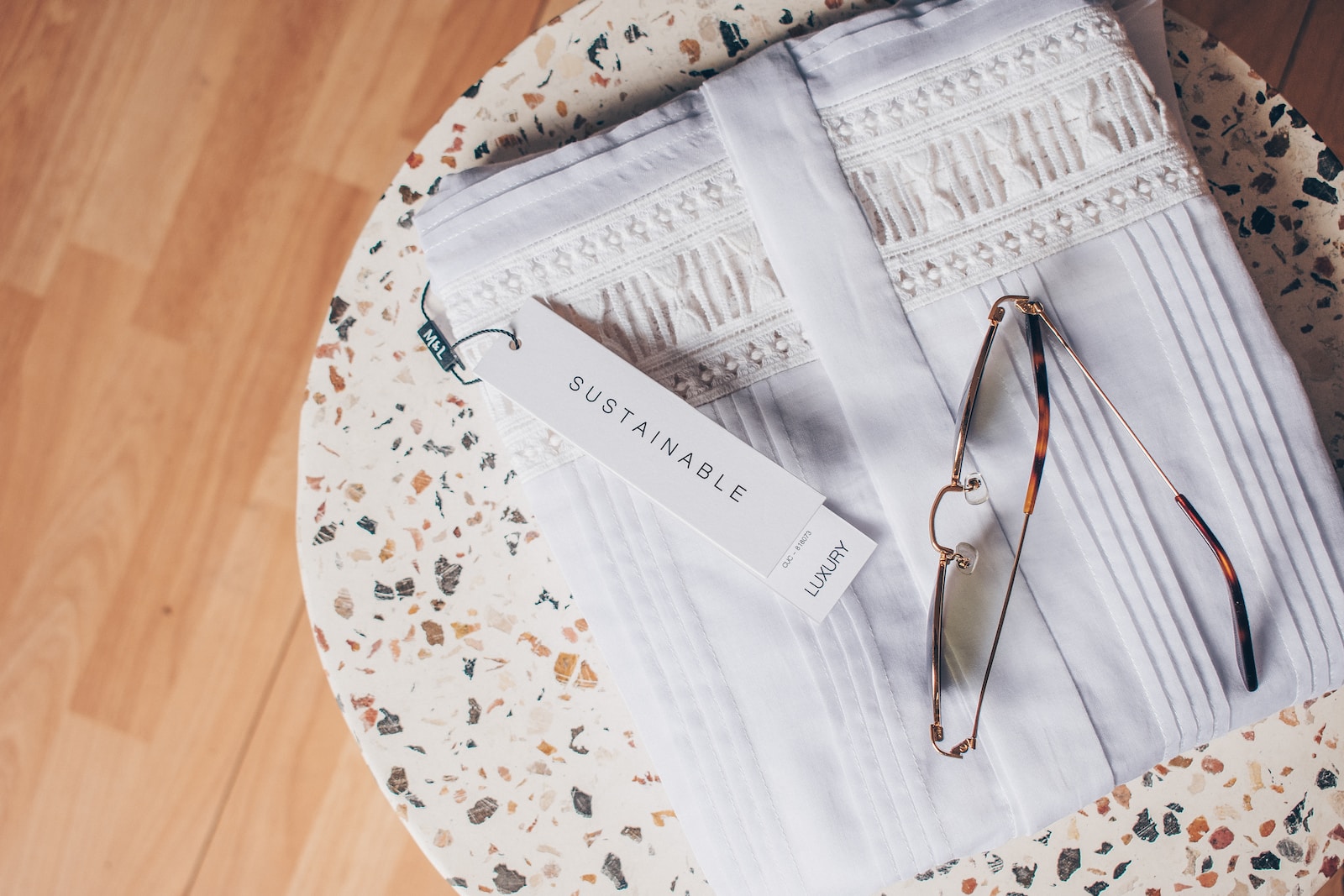Ethical investments in sustainable clothing have gained significant traction in recent years. As consumers increasingly prioritize sustainability and ethical practices, they seek out clothing brands that align with their values. Investors, recognizing this growing demand, have also begun to invest in sustainable clothing companies. In this article, we will evaluate the impact of ethical investments in sustainable clothing. By understanding the potential benefits and challenges of these investments, individuals can make informed decisions and contribute to a more sustainable fashion industry.
Positive Impact on the Environment
Ethical investments in sustainable clothing have a positive impact on the environment. Sustainable clothing brands focus on using eco-friendly materials and implementing environmentally conscious manufacturing processes. By investing in these companies, individuals indirectly support the reduction of harmful pollutants and the preservation of natural resources. This positive impact on the environment aligns with the values of environmentally conscious investors seeking to drive change and mitigate the fashion industry’s environmental footprint.
Sustainable clothing brands prioritize the use of organic and recycled materials. They source textiles from renewable resources, such as organic cotton, hemp, and bamboo, which require less water and fewer pesticides compared to conventional materials. Additionally, these brands promote the concept of “slow fashion” and emphasize durability, encouraging consumers to invest in high-quality, long-lasting garments rather than disposable fast fashion items.
Manufacturing processes also play a crucial role in the environmental impact of sustainable clothing brands. Companies prioritize energy efficiency, waste reduction, and responsible disposal practices. They often implement closed-loop systems, where waste materials are recycled and reused in the production process. Furthermore, sustainable clothing brands strive to reduce their carbon footprint by utilizing renewable energy sources and implementing sustainable transportation practices.
By investing in ethical sustainable clothing companies, individuals are not only supporting environmentally responsible practices but also contributing to the overall shift towards a more sustainable fashion industry.
Social Responsibility and Ethical Practices
Investing in sustainable clothing brands promotes social responsibility and ethical practices within the fashion industry. Ethical brands prioritize fair labor practices, ensuring safe working conditions and fair wages for garment workers. By investing in these companies, individuals contribute to the improvement of labor conditions and support social justice. Moreover, ethical investments encourage other fashion brands to adopt responsible practices, creating a ripple effect throughout the industry.
Sustainable clothing brands often collaborate with factories and suppliers that adhere to ethical labor standards. They prioritize transparency and traceability throughout the supply chain, ensuring that workers are treated fairly and have access to safe working conditions. By investing in these brands, individuals help create demand for ethically produced clothing, incentivizing other companies to follow suit.
Investors can also support initiatives that empower marginalized communities and promote inclusivity within the fashion industry. Sustainable clothing brands frequently partner with artisans and craftspersons from disadvantaged backgrounds, supporting their skills and preserving traditional craftsmanship. By investing in these brands, individuals can contribute to economic empowerment and cultural preservation.
Through ethical investments in sustainable clothing, individuals can actively participate in fostering positive social change within the fashion industry and promoting ethical and fair practices.
Financial Performance and Growth Potential
One common concern for investors is the financial performance and growth potential of ethical investments in sustainable clothing. While there may be some challenges associated with sustainable fashion investments, there is evidence to suggest that these investments can be financially rewarding. As consumer demand for sustainable clothing continues to rise, sustainable fashion brands have the opportunity for long-term growth. Investors who identify and support high-performing sustainable fashion brands can potentially achieve both financial returns and positive impact.

The global market for sustainable fashion has been experiencing significant growth in recent years. According to a report by McKinsey & Company, the sector is expected to grow by 15-20% annually, reaching a market value of $350 billion by 2025. This growth can be attributed to various factors, including increased consumer awareness, government regulations, and shifting societal values.
Investors can evaluate the financial performance of sustainable clothing brands by analyzing key indicators such as revenue growth, profitability, and market share. Brands that effectively combine sustainability with innovative design, quality, and marketing strategies are likely to outperform their competitors.
Furthermore, sustainable fashion brands often have a loyal customer base that is willing to pay a premium for ethically produced clothing. The conscious consumer’s willingness to invest in sustainable products contributes to the financial success of these brands. By identifying sustainable clothing companies with strong market positioning and growth potential, investors can make informed investment decisions.
Challenges in Evaluating Impact
Evaluating the impact of ethical investments in sustainable clothing presents some challenges. Measuring the environmental and social impact of these investments can be complex, as it requires comprehensive data collection and monitoring. Additionally, the fashion industry itself faces challenges in achieving full transparency and accountability throughout the supply chain. However, various initiatives and certifications, such as B Corp certification and supply chain transparency platforms, are emerging to address these challenges and provide investors with better tools for evaluating impact.
To ensure transparency and accountability, sustainable clothing brands can obtain certifications and labels that validate their environmental and social practices. Certifications like Global Organic Textile Standard (GOTS), Fair Trade, and SA8000 assure investors and consumers that the brand meets specific sustainability and ethical standards.
Supply chain transparency is another crucial aspect of evaluating the impact of ethical investments. Sustainable fashion companies that provide visibility into their supply chains enable investors to assess labor conditions, environmental practices, and overall ethical performance. Technology platforms, such as blockchain-based solutions, are being developed to increase transparency and traceability, allowing investors to make more informed decisions.
Despite these challenges, the growth of sustainable investing has fueled the development of tools and frameworks to measure impact effectively. Impact measurement methodologies, such as the Sustainable Development Goals (SDGs) framework, help evaluate the broader societal and environmental impact of investments. By using these tools and working collaboratively, investors and sustainable clothing brands can overcome the challenge of evaluating impact.
Assessing Ethical Investment Opportunities
To evaluate ethical investment opportunities in sustainable clothing effectively, investors should consider several factors:
Environmental Impact
Investors should assess the environmental impact of sustainable clothing brands by considering the materials they use, their production processes, and their commitment to reducing waste and carbon emissions. Certification labels like GOTS (Global Organic Textile Standard) can ensure a brand’s environmental practices. Furthermore, investors can look for brands that prioritize circular economy principles, such as recycling and upcycling materials, to minimize resource consumption.
Social Impact
Investors should evaluate the social impact of sustainable clothing brands by examining their labor practices, supply chain transparency, and commitment to fair wages and safe working conditions. Certifications such as Fair Trade or SA8000 can provide indicators of a brand’s social responsibility. Additionally, investors can consider brands that actively support social initiatives, such as education programs or community development projects.
Financial Performance
Investors should analyze the financial performance and growth potential of sustainable clothing brands. Factors to consider include revenue growth, profitability, market share, and the brand’s ability to adapt to changing consumer trends. Financial indicators can help assess the long-term viability of an investment. Investors can also look for brands that demonstrate innovative business models, such as direct-to-consumer strategies or partnerships with established retailers.
Alignment with Personal Values
Investors should ensure that their ethical investments align with their values and beliefs. Each investor may prioritize different environmental or social issues in a sustainable fashion, such as water conservation, animal welfare, or gender equality. By investing in brands aligned with their values, individuals can have a more meaningful impact. Researching and understanding a brand’s mission, values, and initiatives can help investors make choices that resonate with their ethical perspectives.
Diversification and Risk Management
As with any investment portfolio, diversification is essential when considering ethical investments in sustainable clothing. Spreading investments across different sustainable fashion brands can help mitigate risks and optimize potential returns. Investors should consider factors such as brand reputation, market competition, and product differentiation when building a diversified portfolio.
By considering the environmental and social impact, financial performance, personal values, and risk management, investors can make informed decisions when assessing ethical investment opportunities in sustainable clothing.
Conclusion
Ethical investments in sustainable clothing hold the potential to create positive environmental and social change within the fashion industry. By supporting brands that prioritize sustainability and ethical practices, investors can contribute to the reduction of harmful pollutants, improvement of labor conditions, and the growth of a more responsible fashion industry. While challenges exist in evaluating impact and assessing investment opportunities, emerging initiatives and certifications are helping address these concerns. Ultimately, by considering the environmental and social impact, financial performance, personal values, and risk management, investors can make informed decisions and drive positive change through ethical investments in sustainable clothing. Through conscious investing, individuals can shape the future of the fashion industry and contribute to a more sustainable and equitable world.

































